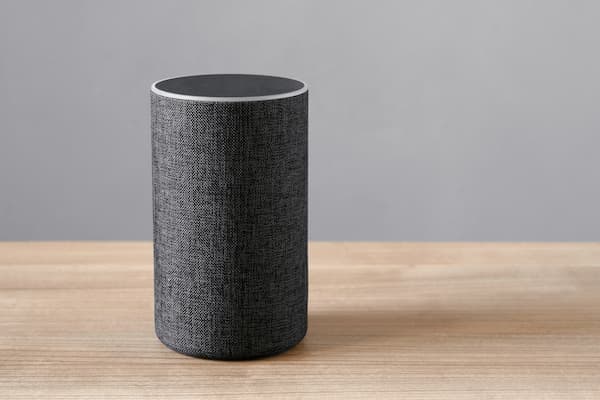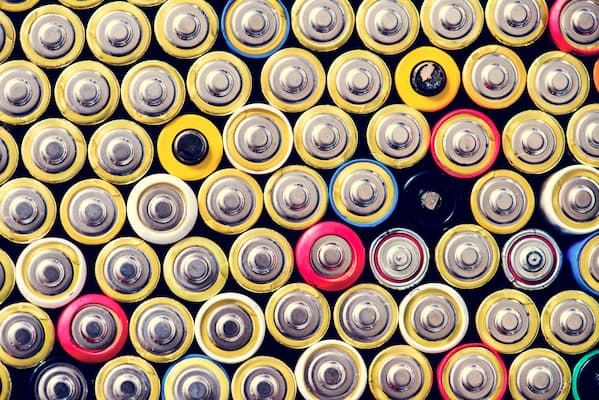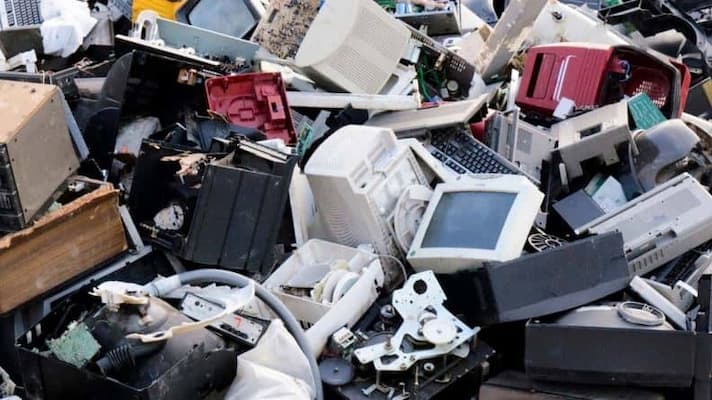As technology changes and advances, so too do methods of e-waste management. With the Internet of Things (IoT), like smart devices, becoming more and more popular, many manufacturing facilities are struggling to keep up with their waste.
So, what is the answer to IoT device waste disposal?
In this article, we will discuss
- What IoT devices are
- The impact they have when disposed of improperly
- How you and your business can better manage your electronic waste
What are The Internet of Things Devices?
The Internet of Things sounds like some new super internet that might take us over. But in actuality, it refers to smartwatches, smart refrigerators, the Google Home, Apple HomePod, and other smart devices not including your phone or your computer.

Together, these other smart devices and small microprocessors that upgrade new work equipment make up the ‘Internet of Things’.
So, what does this mean for the old and failed IoT devices that are getting thrown in the trash due to the latest and greatest advances in new technology?
Electronic Waste is Piling Up
Waste created from electronic devices, also known as e-waste, has jumped in volume a few years after major advances like IoT devices. When home computers became the standard, e-waste increased. When video game consoles and laptops came onto the market, they increased again.
Those devices before were long-term devices, but IoT devices only last a year or two, and are typically designed to fail. Due to this, we’re looking at a mountain of electronic waste that we’ve never seen before.
In fact, the United Nations expects e-waste to reach more than 52.2 million metric tons globally by the end of 2021. It is also estimated that by the time we get to 2050 our e-waste will hit 4 billion tonnes.
Keep reading to learn why.
Planned Obsolescence: Out With The Old, In With The New
To the frustration of consumers, many companies are doing something called planned obsolescence. This is when they design a product to fail after a certain amount of time to push the consumer to make another purchase.
While in most cases batteries can be replaced, which is its own environmental disaster, other devices only have one life. Many IoT devices are made to only last until their battery dies and then be disposed of.
Planned obsolescence is not only an inconvenience to the buyer, who has to spend more money, but also to the environment. This leads us to the next big problem: IoT devices that end up in landfills.
Internet of Things Tossed into Landfills
While electronic devices in the past had a decent lifespan, IoT devices are only lasting a couple of years. This pile-up of e-waste is quickly ending up in landfills, bringing them to max capacity.
E-waste is not biodegradable and facilities are using methods like open-air burning and acid baths. This is so they can make room in landfills and they can recover materials of value. These processes release hazardous toxins into the environment.
Environmental Impact of Internet of Things Devices
When disposed of improperly, both the plastics and metals in your IoT devices can have negative effects on the environment around them. This includes the water, earth, plants, and animals.
Now, let’s take a closer look at the several ways your IoT devices can poorly impact the environment.
Disposing of Batteries
Many IoT devices run on disposable batteries. Improperly disposed of batteries release toxins into our soil. These then eventually make their way into our water supply.

On the other hand, IoT devices that do not allow you to replace batteries are also negatively impacting the environment. After their short life, when discarded improperly they leach toxic materials into the environment.
Toxic Methods to Extract Materials
When disposing of the devices and trying to recover materials from the waste, if done improperly it can be detrimental to the environment. When they burn the IoT devices or use acid baths they release toxins into the air, soil, and water exposing those in the area.
These chemicals can have an irreversible effect on your health, possibly leading to cancer, brain damage, infertility, or miscarriages.
Diminishing Resources
Furthermore, improperly discarding IoT devices also leads to the loss of scarce resources. Many electronics use valuable rare earth elements such as neodymium, indium, and cobalt.
When discarded improperly, you are losing out on the materials, increasing the need for more mining. Extracting these materials is not only costly but also negatively impacts the environment.
So what is the solution? Recycling your IoT devices.
Why You Should Recycle Your Internet of Things Devices Properly
First, recycling your IoT devices with a trusted recycling facility is the best way to be sure your data is safe and the environment is protected.
Certified recycling facilities will also make sure all of your private information is securely deleted to protect you from data theft. Additionally, you can be sure that the processes used to recycle your electronics and extract materials are environmentally friendly.
Recycling Slows Down Climate Change
Next, when you recycle your IoT devices, the recycling facility will extract any reusable parts. This is helpful because then they are able to give it to technology companies to use in their manufacturing.
When producing devices from scratch, manufacturers produce tons of CO2 emissions. But when they use recycled materials, they can cut down on carbon emissions, helping to slow down the impacts on climate change.
Recycle Your Internet of Things Devices with Great Lakes Electronics Corporation
As you have learned, improper disposal of IoT devices can result in data theft and environmental liabilities for your organization. Your best solution is to recycle them with an accredited and certified electronics recycling company like Great Lakes Electronics Corporation.
If you have an old or broken smart device, find your nearest Great Lakes Electronics Corporation location to properly recycle your device instead of throwing it away. If you are a business owner or IT professional, remember to responsibly turn in your Bluetooth devices and wifi extenders with Great Lakes Electronics Corporation.
To get in contact with Great Lakes Electronics Corporation visit our website or call 888-392-7831.


